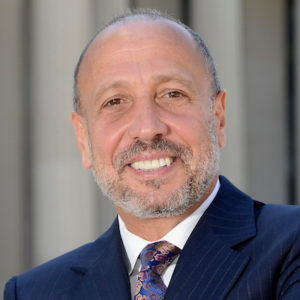The need for startup consulting has never been greater.
Between the size of today’s venture funds, the need to handle all the milestones between rounds, and the regular work that leads to customers, revenue, traction, and growth, today’s startups need help. But the way in which founders seek out advisory services is ripe for change.
Startups no longer want legions of consultants from analyst firms, investment banks, and marketing agencies to provide them with advice. Instead, they want products and technologies that keep them ahead of the competition. And they’re looking for startup consultants that act as an extension of their operating teams.
The Current State of Consulting for Startups
Much of today’s startup consulting feeds off the current atmosphere, where the focus is on raising capital and chasing the outliers. But great companies should be self-sustaining and scalable, have staying power and preserve optionality — something you lose sight of when only striving for unicorn status.
Founders of tech companies have a lot on their plates. The brand building, message and positioning, and sales scaling may not come as natural, and therefore becomes a challenge for long-term sustainability. Finding ways to make the founder role more manageable is a vital ingredient for a startup’s success.
The independent institutions that startups seek out for help are siloed market spaces that are not purpose-built for startups with lower budgets. Their focus is on getting the most dollars out of your business each month or year as possible. Alternatively, venture firms are focused on deploying as much capital into the business as possible, for more equity.
These approaches are not conducive to helping founders with corporate strategy, brand building and go-to-market (GTM) strategy, much less to doing so affordably. When startups see frugality as a means to survival, the question then becomes, how can you more practically scale the startup with the right resources and infrastructure?
Startups’ Consulting Needs
There’s opportunity for operators to achieve more alignment by reducing the number of siloed, independent contractors working with the business and instead working with integrated startup consulting firms.
There are typically three areas where founders need the most assistance:
Market and Product
34% of businesses that fail do so because they lack product market fit. That’s why it’s so important to invest in proper research to understand what the market needs. Market research and competitive intelligence services are essential for understanding opportunity and providing data-driven direction on roadmap planning, pricing, and packaging.
Business Growth and GTM
Making and executing on business decisions is the key to startup growth. It’s also one of the hardest things to do successfully. It’s important for startups to have guidance on all aspects of foundational business growth, including financial long-term modeling, sales strategy, hiring plans, and more. Budget and key performance indicators need to be aligned.
Marketing and Communications
Many startups think that to drive customer acquisition they need to buy Google or LinkedIn ads. But effective marketing and communications is all about building your owned channels — blog, social media, newsletter, etc. — first. It’s there where you can refine your messaging and positioning statements and put your unique point-of-view out into the market. Once brand awareness and momentum starts to increase, then you can go through earned and/or paid channels.
Ready for Recalibration
Startup consulting is ready for a recalibration to build pragmatic, scalable companies. It’s tempting to see rapid growth as the only goal, and consultants as the key to scaling up quickly. For any founder, though, the real goal is to build a company with staying power.
Startup advisory services need an aligned incentives model of investing, in conjunction with effective market and competitive intelligence, and the right resources and infrastructure to support scalability.
To learn more about York IE’s approach to startup consulting, visit our advisory services page.














